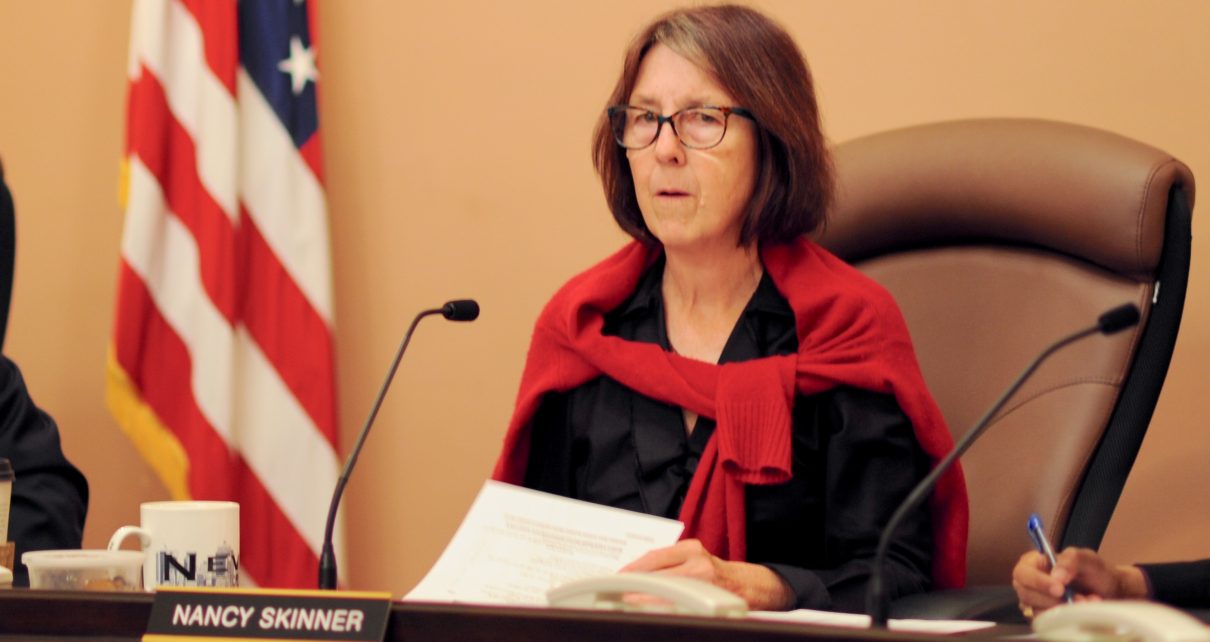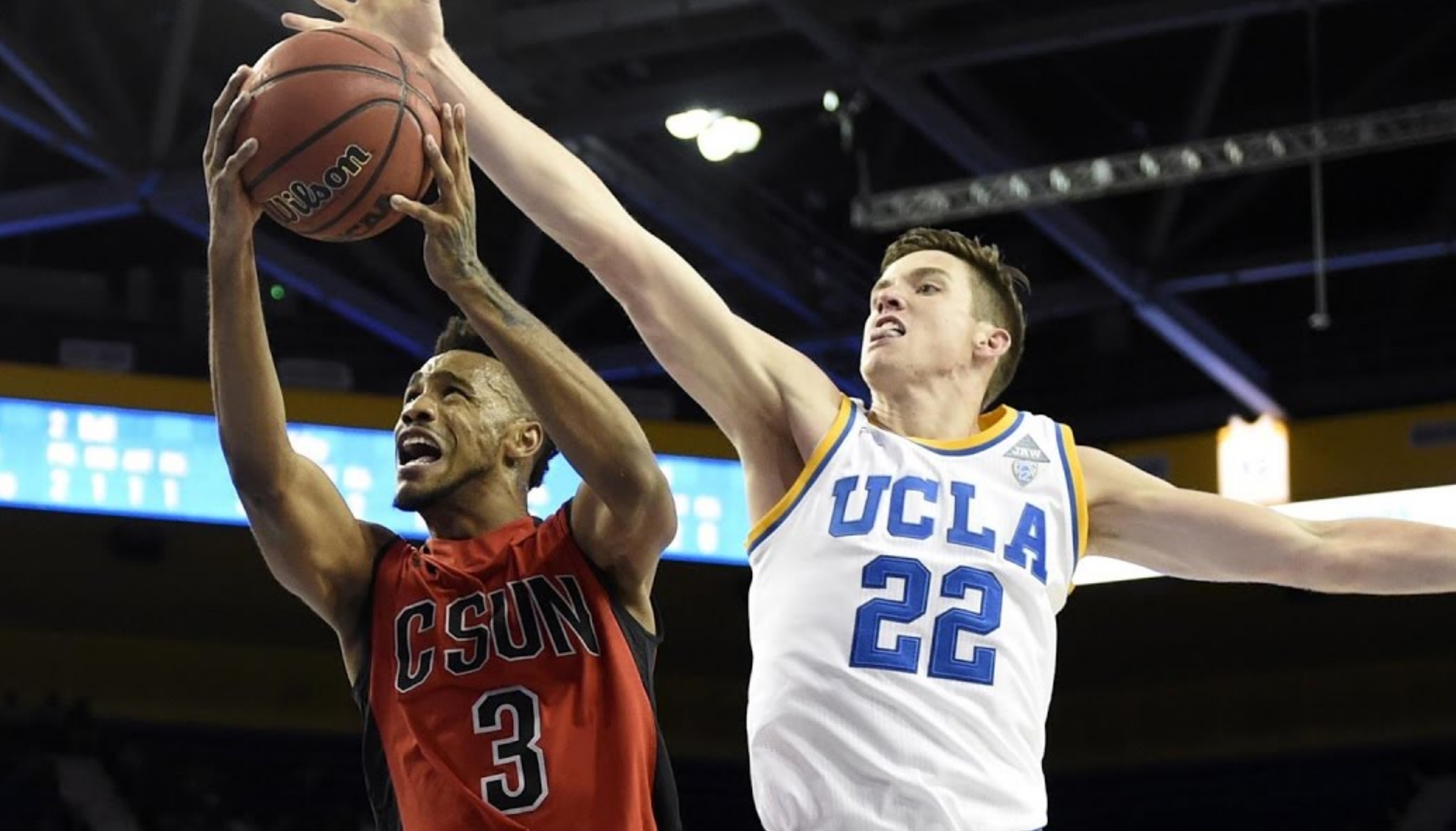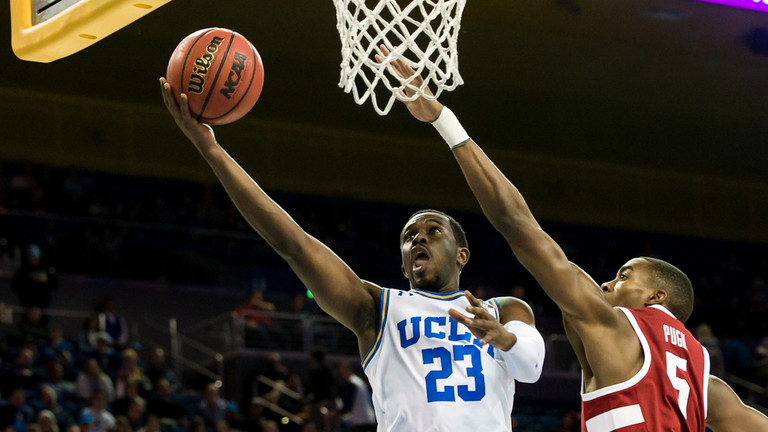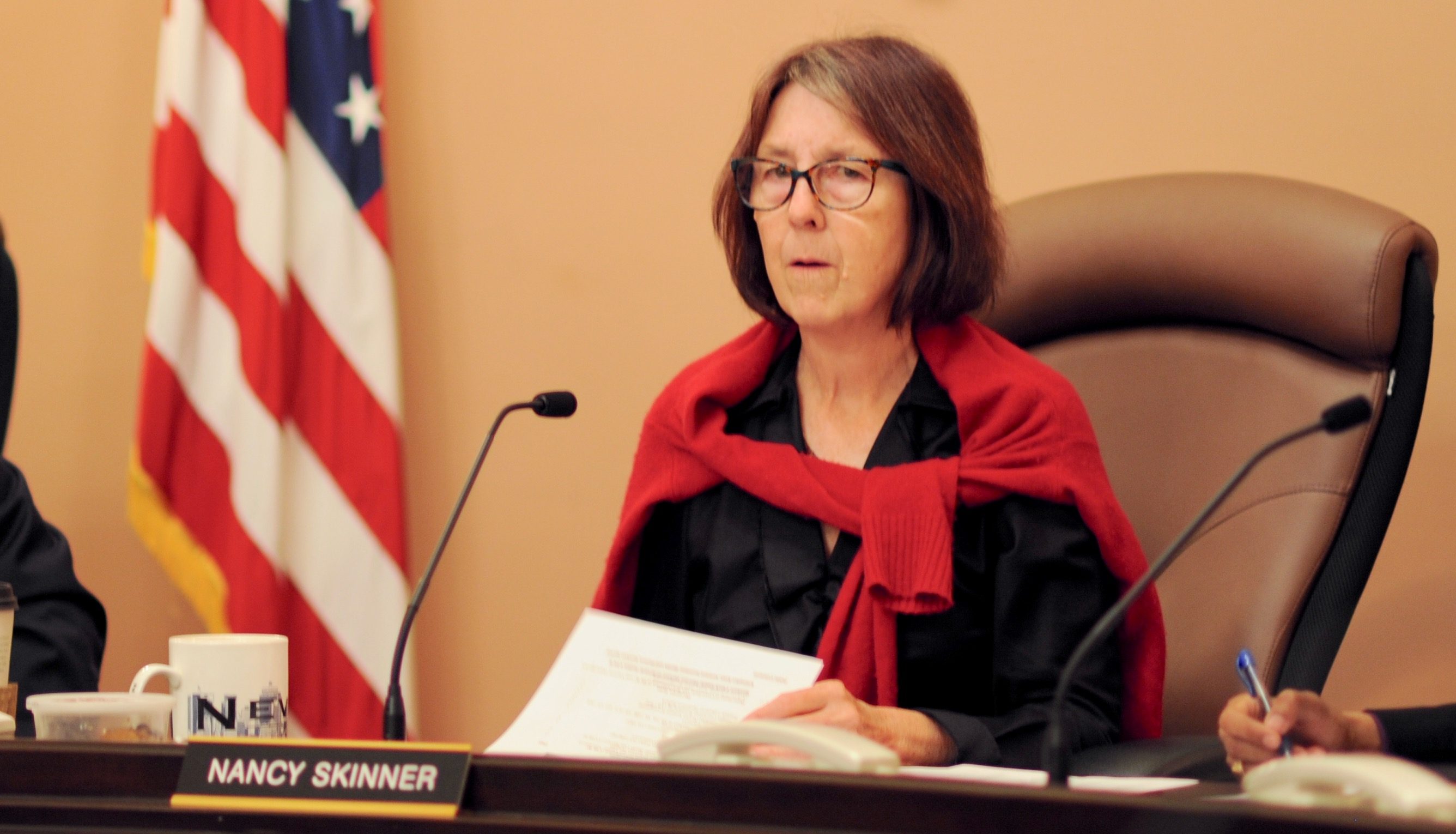
Senator Nancy Skinner. (Photo: Kevin Sanders for California Globe)
New Senate Bill Introduced that Would Expand Student-Athlete Compensation Rights
Senator Skinner’s bill directly challenges new NCAA student-athlete compensation rules
By Evan Symon, December 7, 2020 7:46 pm
On Monday, a new bill was introduced in the Senate that would add onto a previously passed bill that allowed NCAA students compensation and the right to make money off of their name-image-and-likeness (NIL) being used.
The as of yet undesignated bill, authored by Senator Nancy Skinner (D-Berkeley), would add on significantly to SB 206, also known as the Fair Pay to Play Act. While SB 206 was originally supposed to come into effect in 2023, Skinner’s bill would significantly move that date up to either January 1, 2022 or the date when the NCAA’s NIL rules change, August 1, 2021.
The bill would also expand the autonomy of students and add on to SB 206 that colleges cannot deny athletes any rights currently given to other students, with the only exception being recruitment. This would allow athletes to be paid directly or sell memorabilia of their own without having a third-party or waiting until they were out of college to do so.
Senator Skinner wrote the bill following the NCAA releasing their proposed NIL rules last month. While monumental for student athletes, the rules did not go as far as SB 206 did in student athlete compensation in California. According to Skinner, her proposed bill would make sure that California student-athletes aren’t restricted by the new NCAA rules.
“It’s good that the NCAA has followed California’s lead, but their proposed rules changes come up short,” said Senator Skinner in a statement on Monday. “The NCAA doesn’t appear willing to give student athletes the autonomy and full range of benefits that California law does. My new bill will ensure that California athletes are not unfairly and unnecessarily restricted.”
While SB 206 had been immediately denounced by the NCAA after passage in 2019, even going so far as to write a letter to Governor Gavin Newsom saying that such a law would be unconstitutional, other states quickly adopted similar laws to California’s regarding student-athlete payment. This led to the NCAA to soften their stance on the issue and begin working to create ways to make such a system feasible.
“The bill is basically California putting their own stance above the NCAA’s,” noted former student-athlete and current sports agent Darryl West. “California and other states had a lot of sweeping changes over student-athlete compensation in 2019 and 2020, and the NCAA is just now putting up their own regulations. But they are softer. Like, they do allow compensation, but it would be largely through others or to be paid when they are out. California and a lot of athletes know that you can’t pay bills with money you aren’t getting years down the line, so that’s why they are for more critical regulations that allow students to be paid now if their likeness is used in an advertisement, or video game, or something else for the school.
“California laid down the law, then the NCAA tried to, and now California is altering it again with this to make it known what it will be for student-athletes in California. The NCAA is is opposed to radical changes between states to discourage athletes favoring one state over another for college, as that would send the best athletes to the places where they would get paid the most. So that’s where we are now. This is California’s way to change policy. California is risking being ostracized from playing games against out-of-state colleges and the NCAA is risking unbalanced teams in different states if they don’t have a universally followed rule set-up.”
Skinner’s bill is expected to be moved to committee in the next few weeks.
- Bill to Require Law Enforcement Disclosure if AI Was Used To Help Write Reports - August 7, 2025
- Gov. Newsom Files FOIA Request To ‘Expose True Cost’ Of L.A. Federal Troop Deployment for Anti-ICE Riots - August 6, 2025
- California Redistricting: How Newsom’s Plan Will Demolish Hard Fought GOP Gains - August 6, 2025





IF Athletes are Compensated then a reduction of “Scholarships” should be in order